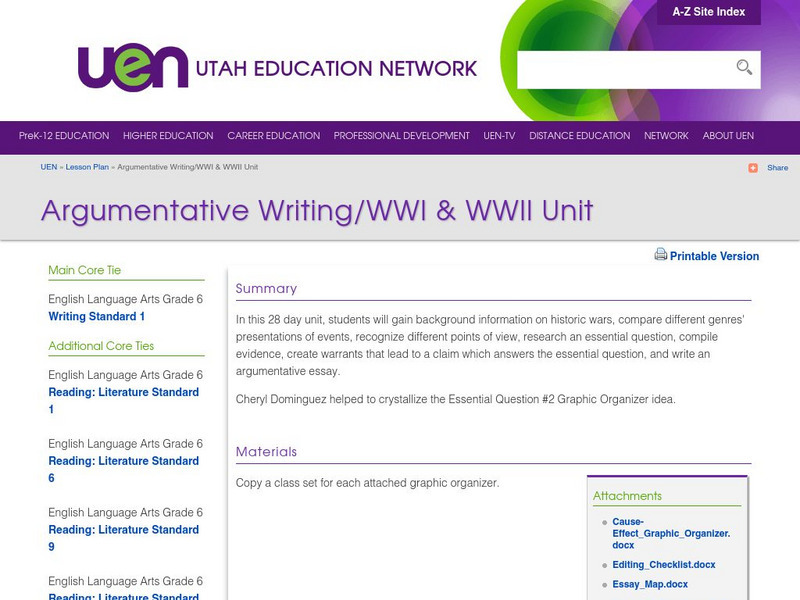College Board
2016 AP® English Language and Composition Free-Response Questions
When it comes to testing, practice makes perfect. A set of free-response questions from the AP® English Language and Composition exam help writers prepare for the test. Three different prompts cover topics such as monolingual English...
College Board
2015 AP® English Language and Composition Free-Response Questions
Many schools have honor codes, but scholars do not always choose to follow them. As part of a series of free-response questions from the AP® English Language and Composition Exam, learners discuss the benefits or disadvantages of honor...
College Board
2011 AP® English Language and Composition Free-Response Questions
Mammals can be carnivores, omnivores, and herbivores, but what about locavores? A set of free-response questions from the 2011 AP® English Language and Composition exam introduces test-takers to the term, which describes people who try...
College Board
2011 AP® English Language and Composition Free-Response Questions Form B
Strong writers support their points with direct evidence and details. A series of free-response questions from the 2011 AP® English Language and Composition exam require the use of details to obtain a good score. The first prompt...
College Board
2010 AP® English Language and Composition Free-Response Questions Form B
Although the United States observes Daylight Savings Time, many countries decided against it. A free-response question, part of a set of sample questions from the 2010 AP® English Language and Composition exam, has writers consider the...
Curated OER
Unit 2: Post-Revolution: The Critical Period 1781-1878
The post-Revolutionary Period of 1781-1787, also known as the Critical Period, is the focus of a series of lessons that prompt class members to examine primary source documents that reveal the instability of the period of the...
Southern Nevada Regional Professional Development Program
Was Bias A Factor? Make an Argument
The ability to analyze an argument is a skill emphasized by the Common Core standards. Offer your class an opportunity to develop and hone their skills by providing them the testimonies in an Oregon court case. After reading the facts of...
Curated OER
The Music and Message of Lauryn Hill
Students explore the music of artist Lauryn Hill and analyze the way she uses her music in a socially responsible manner. In this music artist activity, students read the lyrics to Hill's songs and listen to some example songs. Students...
Curated OER
Exploring Folk Traditions and Folk Beliefs
Ninth graders work together to brainstorm an idea to focus on the similiarties and differences between various cultures. Individually, they interview family members using questions they created based on their topic. They use their...
Curated OER
I Heard the Owl Call My Name
Tenth graders read I Heard the Owl Call My Name by Margaret Craven. They share interpretations and conclusions in either oral or written form. They deliver a speech that conveys information using clear and concise language.
Utah Education Network
Uen: Argumentative Writing/religions of the World Unit
Sixth graders will study the religions of the world. At the end of the unit, 6th graders will write an argumentative essay on the similarities or differences of two world religions.
Utah Education Network
Uen: Argumentative Writing/wwi & Wwii Unit
In this unit, students will gain background information on historic wars. Student will compare different media forms about these events, attend to different perspectives, research the unit's essential question, and then write an...
TES Global
Blendspace: Persuasive Writing
Work through nine links to videos, images, and graphic organizers to learn about persuasive writing.
TES Global
Blendspace: Space Exploration 5 Paragraph Persuasive Essay
Learn to write a five-paragraph persuasive essay by working through six links to videos, graphic organizers, and activities on space exploration.















